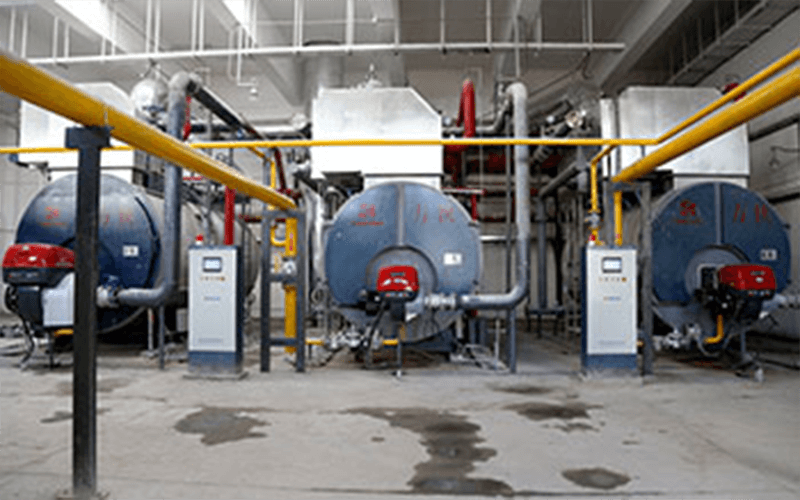Explosion cause of Gas Hot Water Boiler
Gas hot water boiler explosion causes gas hot water boiler accident can be divided into gas hot water boiler body and furnace two parts: gas hot water boiler body accidents are divided into five types: burst, flattening, burning, swelling, crack.

The accident in the furnace is the explosion of fuel gas. The causes and occurrence of the accident are as follows: burst (Rupture): gas hot water boiler body, resulting in burst due to negligence of operators, inaccurate pressure gauge, or thinning of corrosion, resulting in more pressure than it can bear. The flattened (Collaps): is suddenly cooled because of the low water level, which results in the loss of water and overheating. Water, so that the steam in the pot condenses into water, the volume is reduced to a vacuum, such as poor support, can not withstand the outside atmospheric pressure, resulting in flattening.
Most of the burning of (Burning): is in the furnace tube, pipe and the connection between the pipe and the tubesheet. The reason is that the operator adds too much fuel and the fire is too fierce, or it is caused by the insufficient capacity of the gas-fired hot water boiler and the heavy fuel caused by the heavy fire. The reason for the expansion of (Buldge): is that the oil or scale in the gas-fired hot water boiler is attached to the boiler board or steel pipe, which makes the heat impossible to pass through, resulting in the stress reduction of local overheated (Local Heating), steel plate material. Degeneration and softness, resulting in bulging phenomenon. The reason of crack (Crack): is that the water alkalinity of gas hot water boiler is too high to form caustic embrittlement (Caustiv Enbrittlemnt). Laminated (Lamination).
Caused by impurities such as oxygen in steel The steel plate is too thick and the temperature difference between inside and outside is too large, resulting in stress corrosion of thermal expansion and cold shrinkage, commonly known as trench corrosion (Groo ving). As for the explosion of gas in the furnace, it is due to the poor exhaust of oil and gas fuel, which reaches the range of gas explosion and causes the explosion.

